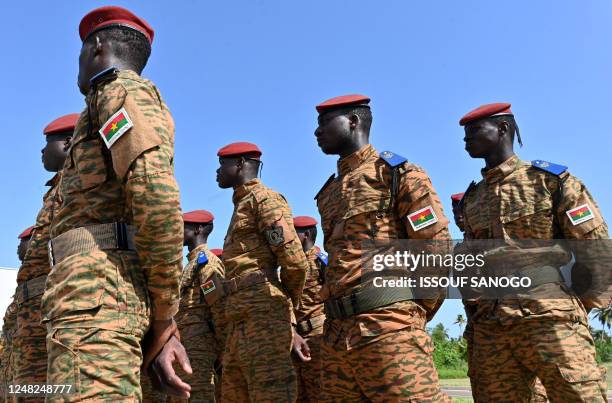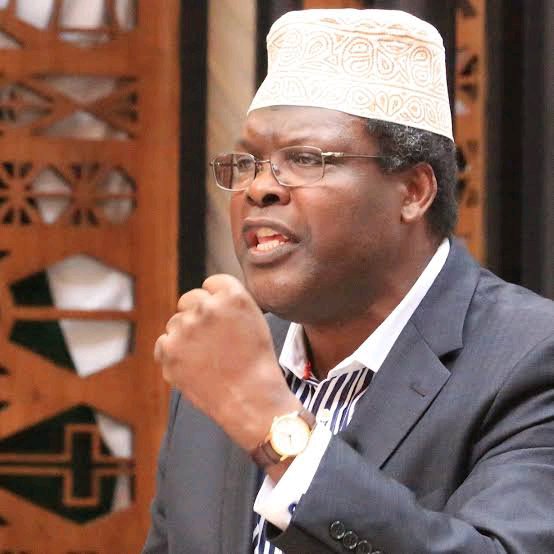They promised freedom but freedom without challenge becomes obedience. Across Africa a quiet war is unfolding. Not between armies and rebels but between power and accountability. In capitals where parliaments meet and elections are televised, democracy looks alive. Yet beneath the surface it breathes shallowly.
The voices that question authority are fewer. The parties that once stood for dissent now stand in line for favors. Opposition no longer shakes the system, it negotiates with it. The idea of challenge has not disappeared in one loud moment, it has been slowly suffocated in the calm language of stability.
From Nairobi to Kampala, Harare to Ouagadougou the script repeats itself. Power grows smarter, not louder. It no longer needs to ban opposition parties. It simply weakens them with time, divides them with promises and replaces their courage with comfort.
This is not the death of democracy. It is the rehearsal of it.
The Roots of a Vanishing Rivalry
When independence came, Africa’s founding leaders had a shared fear. That division would destroy the fragile unity they had built. Having fought colonial rule, they saw opposition as betrayal. Many created single-party states to maintain national cohesion. Political variety was treated as political chaos.
By the 1970s, the continent was full of one-man states. Presidents spoke for entire nations and parliaments became chambers of applause. To dissent was to risk exile or worse. For decades power survived not through popularity but through monopoly.
Then came the 1990s. The Berlin Wall had fallen, donor nations were tying aid to reform, and a restless middle class was demanding political freedom. Multiparty democracy returned. Streets filled with chants for term limits and free elections. For the first time in a generation, citizens felt power could change hands peacefully.
But democracy was reborn with a flaw. The systems changed faster than the habits. The new leaders were often products of the old order. Once they reached power, they inherited not just offices but the taste for control. The promise of reform became a performance of reform.
Uganda: Democracy on Borrowed Time
Uganda’s political journey captures that contradiction perfectly. When Yoweri Museveni seized power in 1986, he promised an end to tyranny. Four decades later he rules a nation where opposition exists only as a tolerated symbol.
The National Resistance Movement dominates every institution from local councils to the army. Elections come and go yet the result never surprises. Bobi Wine, the pop star turned politician, tried to ignite a new spirit of resistance. His message of liberation drew thousands of young Ugandans tired of recycled leadership. The state responded with arrests, tear gas, and intimidation.
Now a new front has opened — the digital battlefield. In 2025 Uganda amended its cyber laws to criminalize “offensive communication” and “malicious information.” These vague definitions have become tools for silencing critics online. Journalists and rights groups have filed court challenges arguing that the law targets dissent rather than crime.
The internet, once a refuge for free thought, is now monitored. Opposition leaders have shifted from stages to screens, from rallies to encrypted chats. Yet even there, power follows them. In Uganda democracy functions, but its freedom has been borrowed and its return date is uncertain.
Zimbabwe: Hope Trapped in History
Zimbabwe’s opposition story is one of endurance and heartbreak. After decades of Robert Mugabe’s rule, the 2017 transition sparked hope for renewal. Yet the new leadership quickly learned the old tricks. The ruling ZANU-PF perfected control without overt brutality.
The Citizens Coalition for Change, inheritor of Morgan Tsvangirai’s movement, fights on two fronts against a state that manipulates institutions and against its own internal divisions. Elections remain ritual rather than revolution. The Electoral Commission’s independence is constantly questioned.
In Harare, inflation is back. Young people migrate and public services crumble. Yet every few years the same theater repeats. Candidates promise rebirth. Voters queue with hope. Results are contested, and nothing changes. Zimbabwe’s tragedy is not oppression alone but exhaustion. The people no longer expect victory.
Rwanda: The Efficiency of Control
Rwanda’s case is unique. A democracy without debate. President Paul Kagame’s government is praised for discipline, order and efficiency. The streets are clean, the systems work and corruption is rare. Yet the cost is conformity.
The Rwandan Patriotic Front wins elections by margins so large they erase suspense. Opposition parties exist but cannot operate freely. Critics live abroad or stay silent to survive. Many Rwandans accept this, believing peace is too precious to gamble on pluralism.
Still, questions linger. What happens when political calm is achieved not by consensus but by fear? Stability without opposition may look like peace but it leaves no space for correction.
The West African Reversals
If East Africa struggles with domination, West Africa is grappling with collapse. The coups in Mali, Burkina Faso and Niger have replaced the pretense of democracy with the certainty of military rule.
In Burkina Faso, Captain Ibrahim Traoré’s junta has tightened control since seizing power in 2022. By 2025 the regime had arrested journalists, dissolved media unions and placed the electoral commission under military oversight. Public rallies in Ouagadougou show thousands cheering for the junta but behind the spectacle is fear.
A report by Human Rights Watch in March 2025 detailed how journalists were detained for reporting on corruption and civilian abuses. The junta claims to protect sovereignty from Western influence, yet it crushes domestic dissent with the same zeal as the dictators it once condemned.
In Mali and Niger, coups have followed similar scripts. Promises of reform, rejection of foreign partners, and suppression of political rivals. Opposition parties remain suspended or silent. Civil society operates cautiously, unsure whether the next law will label them traitors.
Senegal, once a beacon of stability, now trembles under the weight of protest. The arrest of opposition figure Ousmane Sonko in 2024 sparked riots and a wave of youth anger. For the first time in decades, Senegal’s reputation as a democracy of restraint was shaken.
Across the region the message grows clear: where politicians failed, soldiers step in. The ballot has lost its power to threaten the bullet.
Kenya and Ghana: The Illusion of Choice
Kenya and Ghana still hold regular elections, still boast of term limits, still project an image of democratic endurance. Yet underneath lies a fatigue that eats away at faith.
In Kenya the handshake between government and opposition blurred accountability. The opposition joined the ruling side in the name of unity leaving citizens without a watchdog. The result is calm at the top and chaos at the bottom.
In June 2025 thousands of young Kenyans filled the streets of Nairobi, Mombasa, Kisumu and Nakuru to protest the rising cost of living. What began as economic frustration became political confrontation. Security forces used tear gas, and dozens were killed. International headlines spoke of “youth without leaders.”
Earlier, protests against the 2024 Finance Bill had forced the government to withdraw planned tax hikes on essentials. But instead of dialogue, the state resorted to prosecution. Many protesters were charged in anti-terrorism courts. A chilling sign of how dissent is being reframed as extremism.
Kenya’s ruling class remains the same families rotating power. Each election feels like a sequel with different slogans but the same story.
In Ghana, the opposition National Democratic Congress accuses the government of weaponizing institutions to secure advantage. Corruption scandals rise and fade, reforms are promised then postponed. Ghanaians still vote, but fewer believe their vote transforms anything.
Democracy here is like a mirror that reflects freedom but hides fatigue.
The Digital Opposition: A Revolution Without Leaders
While traditional opposition loses ground, new voices have emerged from the most unexpected places — social media, art and the streets. The digital generation has no patience for the old rules.
#EndSARS in Nigeria, #FeesMustFall in South Africa, #OccupyParliament in Kenya. These movements are spontaneous, emotional and fearless. They gather people faster than political parties ever could. They speak in images not speeches. Their strength lies in speed and authenticity.
But states are learning fast. Governments now deploy cyber laws, surveillance systems, and internet shutdowns. Uganda’s new cyber law criminalizes dissenting opinion. Kenya monitors online mobilization. Nigeria has used misinformation laws to arrest activists. The battle for democracy has moved from the streets to the servers.
This new opposition is leaderless yet unstoppable. It lacks structure but carries moral weight. It represents the purest question of all: if formal politics is captured, who speaks for the people?
The New Shape of Silence
Opposition in Africa is changing form. It is not always a party with offices and slogans. Sometimes it is a journalist exposing theft. Sometimes it is a student organizing protests. Sometimes it is a song that mocks power.
Yet silence grows seductive. In countries where protest brings bullets or jail, people choose safety over speech. The danger now is not that the opposition disappears but that citizens stop expecting it to exist.
When leaders face no rivals, they forget how to listen. Institutions lose their courage. Citizens stop believing change is possible. Democracy becomes ritual without risk.
The Question That Remains
Africa’s political future will not be decided in parliaments alone. It will depend on whether people still believe they have the right to question power. The next opposition might not sit in parliament. It might tweet, write, or march.
From the protests in Nairobi to the underground journalists in Kampala and the silenced reporters in Ouagadougou, a pattern connects them — a refusal to be erased.
History moves in cycles. Power always seems permanent until the moment it breaks. For now, power stands unchallenged, smiling from billboards and podiums. Yet every silence hides a gathering noise.
When power has no rival it grows blind to its own excess. And when people stop fearing, that quiet will become thunder.


